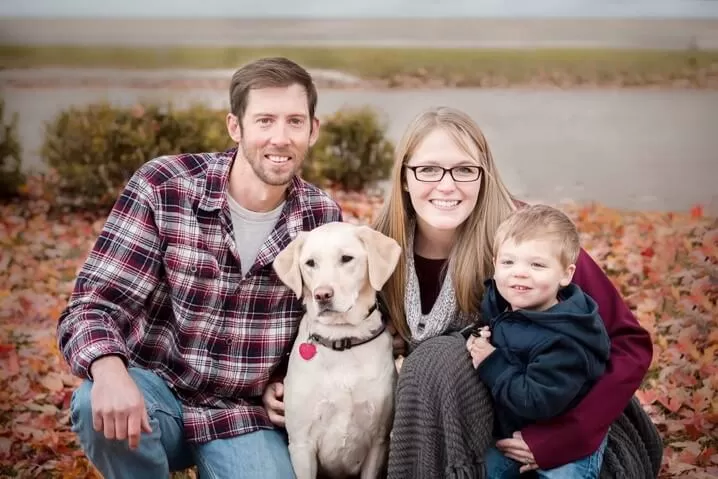My Story: Lupus and Pregnancy, What If?

Having lupus and wanting to have a child
I always knew I wanted to be a mother—and to be one at a relatively young age too. It was something I started thinking seriously about after I graduated from college. The issue for me was that I was diagnosed with lupus when I was 17. For many women with lupus, it is possible to have a successful pregnancy. However, all lupus pregnancies are considered high risk, for both mother and baby. That made the decision to get pregnant the biggest health-related decision I ever had to make. Here’s my story.
What if…
Over and over again I thought about things like:
“What if I can’t get pregnant because of the medicines I have to take?”
“I know other women with lupus who ended up having miscarriages. Will that happen to me?”
“Sometimes it’s hard enough to take care of myself. How will I be able to take care of a baby?”
“What if I have a flare and can’t even change my baby’s diaper?”
I met my husband, Pete, in high school. He and I talked about my doubts and fears around having a baby long before we got married. We discussed all of the possibilities—the possibility of not being able to have a biological child and about making alternate plans if that turned out to be the case.
Fortunately, Pete and I are usually always on the same page, and we were there together with the same goals from the very beginning.
Taking the big step
My doctor was a rheumatologist who specialized in lupus and pregnancy. I was extremely nervous but I trusted her and was confident that I was in good hands. We discussed the possibility of pregnancy at length and what would have to be done in order to make that happen in a year or two.
My doctor stressed the importance of making sure that my lupus was well managed and that I was healthy enough before even conceiving. So over the course of the next several months, I worked very closely with her and my team of healthcare providers.
During all of this, Pete and I worked hard to balance our emotions as well as our financial situation. It was a difficult time. But everything finally came together and when I was in remission for an extended period of time, my rheumatologist gave us the okay to start trying. We were very lucky—I got pregnant 6 months later!
On being pregnant
We were very excited when I got pregnant, but oddly enough, I also felt a bit disconnected from my baby for the first 3 months of my pregnancy. Part of me wouldn’t allow myself to get too attached in case something did go wrong. We didn’t make any announcements on social media, nor did we decorate the baby’s nursery.
Because having lupus made my pregnancy high risk, my doctors monitored the baby’s growth very closely. And I saw my healthcare team very frequently. They conducted many tests, such as urine screenings to check my kidneys and to make sure my protein levels were okay. It was all so time-consuming. But at the same time, I knew my doctors were doing everything they could to help keep me and the baby safe.
I had a couple of health scares during the pregnancy, but fortunately they turned out to be nothing serious. At 38 ½ weeks, I delivered a healthy baby boy—we named our bundle of joy Kevin.
Managing life with a child
Kevin is 3 years old now, and he’s an amazing little boy who brings us so much happiness. He helps me to think less about the stressors in life and more about what are important—things like family.
There are days when I’m in lots of pain and cannot play with Kevin as much as I’d like. But we manage to find other things to do. We might read a book or watch a movie instead. The important thing is that we’re spending time together. He’s always sure to give me lots of hugs or snuggles when I’m not feeling well.
Another positive thing that has happened as a result of having my son is that he motivates me to take better care of myself. I am constantly reminded that it’s important to get plenty of rest, eat healthy, and follow up with the doctor. When I had experienced flares in the past, I wouldn’t always tell her. But now I always call the doctor and go in as needed—Kevin deserves to have a mom who looks after her health!
What my lupus journey has taught me
Everyone’s situation is different and one size does not fit all. But I think it’s important for a woman with a chronic medical condition (such as lupus) to discuss the facts with the doctor, about what’s possible and what’s not. Don’t assume that because you have a chronic disease or condition, you can’t have a child or fulfill your other life goals. Have a conversation with your doctor and ask a lot of questions and take notes. Work together so that you fully understand the risks as well as the benefits.
If you decide that you want to get pregnant, also talk with your family and friends or a support group. Don’t be afraid to share your worries and fears with them—ask for their help and encouragement. It can be very reassuring to have a group of supporters around you. My husband, for one, knows me—and my lupus—better than anyone. He knows when I need something and when to leave me alone. He truly is my rock.
Finally, it’s important to have a doctor you trust and are comfortable with. If you don’t connect with a doctor, find another one. And if you want to get pregnant and your doctor finds you are healthy enough for pregnancy, make sure you follow through with all of the tests your doctor recommends. There will probably be a lot of them and they may take a lot of time, but keep in mind that they are only trying to help you manage your condition. If you’re on track to pregnancy or having a baby, remember that those tests and follow-ups are needed to help ensure as safe a pregnancy and as healthy a baby as possible.
Kristie Bauer is a creative marketing professional who lives in Stillwater, MN with her husband, Pete, and their son, Kevin.
References
- 1. Lupus Foundation of America. Planning a Pregnancy. Accessed March 24, 2017.





